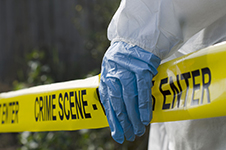 An Anatomy degree is an excellent path to getting entry into the allied health professions, including medicine, dentistry, and physiotherapy, but the Department trains students to undertake a variety of careers. These range from those in the scientific arena, to those that may have little to do with anatomy or even medical science at all.
An Anatomy degree is an excellent path to getting entry into the allied health professions, including medicine, dentistry, and physiotherapy, but the Department trains students to undertake a variety of careers. These range from those in the scientific arena, to those that may have little to do with anatomy or even medical science at all.
Directly relevant careers
Technical Work in Medical Laboratories:
Anatomy graduates are well equipped to work in a wide range of medical, health department and applied biological science laboratories. The training they receive is especially helpful for work in research laboratories, since they are also introduced to research methods and research questions.
Tertiary Education - Teaching:
An increasing number of tertiary institutions now require staff who can teach anatomy, from gross anatomy to histology and cell biology. These include polytechnics as well as universities, in departments like physiotherapy, nursing, biomedical sciences, radiography, and speech therapy, as well as anatomy and physiology. With a degree in Anatomy and further teacher training, you could have a career in teaching.
Tertiary Education - Research:
Our graduates are also well suited to undertake both laboratory-based and library-based research work in university departments and other research institutions. The topics covered in a degree in Anatomy are very diverse, ranging from gross anatomy of the human body to biological anthropology of prehistoric peoples and the ethics underlying medical science. This diversity enables students to contribute to research in a wide variety of areas, and provides them with a range of different perspectives.
Students also gain skills in studying a BSc in Anatomy that can be incorporated into careers beyond those that appear to be directly relevant. Graduates are provided with the opportunity to acquire any or all of the following skills:
- ability to analyse and critique information and data
- to synthesize information and apply it to solve problems
- ability to locate, evaluate and use information in a range of context
- computer technology skills
- organisation and time management skills
- oral and written communication skills
These skills are invaluable in any career and can provide students with an excellent starting point.
Options open to graduates outside the technical/research areas
The possibilities are quite extensive for students who complete a BSc in Anatomy and you are really only limited by your ability to 'think outside the box'.
Some of the careers Anatomy graduates have ended up in are:
- Forensic technical officer
- Museum communicator
- Marketing manager
- Viticulturalist
- Wine writer
- Sales and marketing rep
- SDHB Management consultant
- Chiropractor
- Occupational therapist
- Nurse
- Lawyer
- Foreign service national investigator
- Samoa Business executive
- Ambulance officer
- Police detective
- Radiation therapist
- Midwife
- Fisheries prosecutor
- Cytogeneticist
It needs to be stressed that study beyond the undergraduate BSc level strengthens and broadens the skills that can be acquired at undergraduate level. Even a one year postgraduate Honours degree, or PGDipSci can help you stand out from the crowd.
Alumni profile
![Mina Final[1] copy](https://www.otago.ac.nz/__data/assets/image/0034/259288/mina-final1-copy-614244.jpg)
Mina Vasilic's career started as an undergraduate student sitting in a lecture theatre, listening to a series of lectures on reproductive biology.
"I always had an interest in medical science but it wasn't until the early years of my studies at Otago University that I discovered my passion for embryology."
She approached the Anatomy lecturer afterwards to discuss possible career options in reproductive biology. This was when she was first introduced to the idea of becoming a Clinical Embryologist.
The Anatomy lecturer offered Mina a Biomedical Science Honours research project (majoring in Reproduction, Genetics and Development) looking at steroid receptors in the fetal sheep ovary as a model of polycystic ovary syndrome. Upon completing her Honours degree, Mina was then accepted into the prestigious Master of Clinical Embryology course at Monash University in Melbourne.
Mina has now completed her training and is a fully-fledged registered embryologist. Her advice to anyone unsure of their own career path is to actively seek opportunities to talk to lecturers and others in the field of interest. “Make a time to meet with them to discuss what interests you. You never know what wonderful opportunities that may bring.”